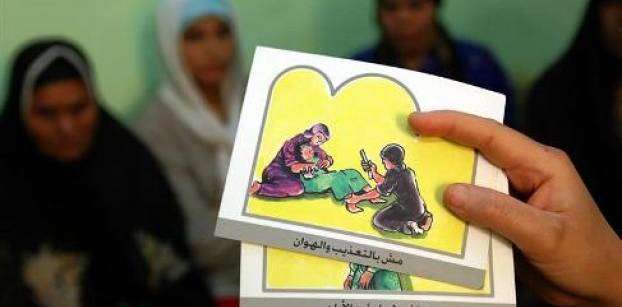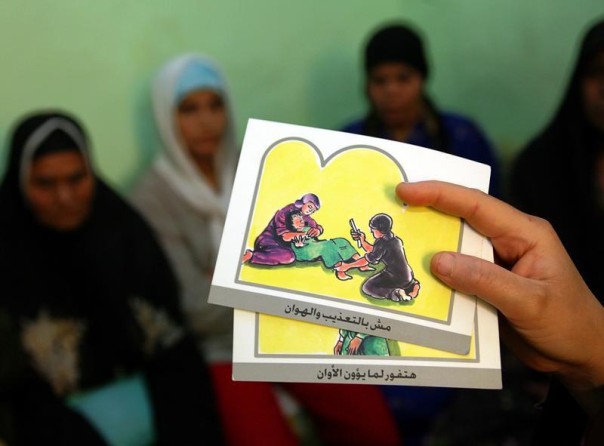Latest NEWS
- Aswat Masriya, the last word
- Roundup of Egypt's press headlines on March 15, 2017
- Roundup of Egypt's press headlines on March 14, 2017
- Former Egyptian President Hosni Mubarak to be released: lawyer
- Roundup of Egypt's press headlines on March 13, 2017
- Egypt's capital set to grow by half a million in 2017
- Egypt's wheat reserves to double with start of harvest -supply min
- Roundup of Egypt's press headlines on March 12, 2017
Egypt's cabinet approves amendments to law against FGM
CAIRO, Aug 28 (Aswat Masriya) - Egypt’s cabinet approved a draft amendment to the law against Female Genital Mutilation (FGM), imposing harsher punishments on the practice, the health minister said on Sunday.
The draft amendment classifies FGM as a felony instead of a misdemeanour, punishable with imprisonment between five- seven years and up to 15 years in case the operation led to a permanent disability or death, Minister Ahmed Emad told a press conference.
The bill also punishes whoever accompanies a female to have the operation with imprisonment between one-three years.
The current law sets a punishment between three months to two years or a fine between EGP 1,000 - 5,000 on anyone who causes an injury due to FGM.
The cabinet approved the amendment and sent it to the House of Representatives for approval.
Last May, a 17-year-old girl Mayar Mousa of Suez died due to bleeding followed by a sharp fall in blood circulation during an FGM operation.
Mousa’s death sparked anger against doctors and laws that tolerate the practice despite the ban imposed in 2008.
Prosecution accused Mousa’s mother, the doctor who performed the operation and the anesthesiologist of involuntary manslaughter and causing a wound that led to death. The doctor is still at large.
The first doctor convicted in an FGM case, Raslan Fadl, recently served a three months sentence for performing an FGM operation, more than a year after a Jan 2015 court ruling sentenced him to two years for involuntary manslaughter and three months for practicing FGM.
Fadl performed the operation on 13-year-old Sohair al-Bata'a in June 2013 who died during the surgery.
He turned himself in on April 2 and served his sentence until July 2. Lawyer Reda Danbouki of the Women’s Centre for Guidance and Legal Awareness, who pursued the lawsuit against Fadl on behalf of the deceased girl in 2015, said that the two-year sentence was annulled as Fadl reconciled with the family of the girl.
Egypt banned Female Genital Mutilation (FGM) in 2008 but it is still widely practised especially in rural areas.
According to United Nations Development Programme (UNDP), the practice of female genital mutilation conducted on girls between 15 and 17 has dropped from 74 percent in 2008 to 61 percent in 2014.
UNDP said in a statement late May, "in Egypt 82% percent of female circumcisions are performed by trained medical personnel." The UN called on health professionals "to take a strong stand to stop the medicalisation of FGM."













